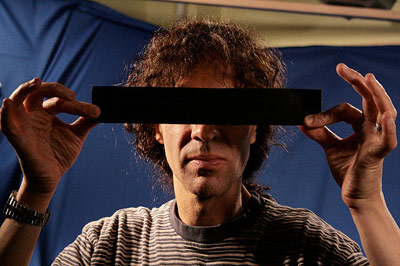
On June 21, the Supreme Court irresponsibly failed to put a stop to government censorship of non-obscene “indecent” speech – basically dirty words – on broadcast radio and television. The Court did say the Federal Communications Commission (FCC) could not punish FOX Television for having aired two common vulgarisms: When Cher received a Billboard Music Award, she defiantly confronted those who said she was washed up, declaring, “I’ve also had critics for the last 40 years saying that I was on my way out every year. Right. So fuck ’em”; and Nicole Richie at the next year’s awards said, “Have you ever tried to get cow shit out of a Prada purse? It’s not so fucking simple.” The court also said the commission could not fine ABC $1.2 million for having aired seven seconds of the nude buttocks of a female character on NYPD Blue. The court ruled that the broadcasters had not been given fair notice that the commission would consider these fleeting expletives and images a violation of its indecency policy. This was because the networks “lacked notice at the time of their broadcasts that the material” violated the FCC’s “then-existing policies.”
But the court ducked the issue that was squarely presented to it: whether the FCC’s policy prohibiting broadcasters from airing non-obscene speech that it considers “indecent” is consistent with the First Amendment. The policy forbids broadcasters (but not cable or satellite operators) from airing anything “patently offensive” – to whom? – “as measured by contemporary community standards” – what community? – “for the broadcast medium” – there are different standards for broadcast, cable, satellite, Internet – “sexual or excretory activities and organs” – a glimpse of bare buttocks? – “at times of the day when there is a reasonable risk that children may be in the audience.” The federal court of appeals had found the commission’s policy unconstitutionally vague. It also found that the commission was unable to enforce it consistently. The Supreme Court, however, found it “unnecessary” to address this fundamental First Amendment issue.
The court’s excessively narrow resolution of the case leaves everyone – broadcasters, the FCC, advertisers, viewers and listeners – in the dark on whether the commission can continue to enforce its ridiculously flawed policy. The court essentially kicked the can down the road, refusing to decide the very issue presented by the parties.
Two features of the court’s lamentable opinion stand out: its squeamishness and its hypocrisy. Justice Anthony Kennedy’s opinion for the court declined to say what the offending words at issue were. Instead, the opinion says that the “F-word” and the “S-word” were uttered. Whose sensibilities was the court trying to protect? Surely the court was not concerned that readers of the official reports of the United States Supreme Court might be offended. Rather, the court’s euphemisms seemed to stem from the current justices’ squeamishness about writing the words that all of us use in many contexts.
This contrasts with former justices’ treatment of the same vulgarity in the famous “Fuck the Draft” case decided by the very proper and courtly Justice John Marshall Harlan in 1971. A young protester against the Vietnam War was arrested for wearing a jacket emblazoned with the slogan “Fuck the Draft” to a Los Angeles courthouse. At the beginning of the oral argument, the prim then-Chief Justice Warren Burger cautioned the protester’s lawyer that the court was well aware of the “facts” and the lawyer shouldn’t dwell on them, clearly fearing that uttering the dirty word would pollute the rarefied atmosphere of the high court. The lawyer immediately and courageously told the court exactly what the jacket said. The eloquent opinion written by Justice Harlan did not shy away from saying what was at stake. Harlan memorably remarked that “One man’s vulgarity is another’s lyric,” and held that government could not ban use of the expletive.
But the current justices’ squeamishness, while inexplicable, is not as serious as its hypocrisy. In refusing to decide the constitutionality of the FCC’s current policy, the court said that while this issue had been “urged for our consideration,” the court would “adhere to the principle of deciding constitutional questions only” when necessitated by the facts of a particular case. In other words, exercising judicial restraint, the court decides constitutional questions only if there is no alternative. But these are the same justices who decided the infamous Citizens United case in 2010. There, the court abandoned any sense of judicial restraint, manufactured a constitutional issue not presented by the parties, refused to rule on narrow statutory grounds, overruled precedents and struck down the key provisions of the McCain-Feingold Act on corporate spending to influence elections (thereby creating the Super PAC monster now corrupting the electoral process). One can only marvel at the court’s brash judicial activism in Citizens United and its prissy timidity in the FCC case. A more courageous and intellectually honest court would not have minced words, but would forthrightly have held the FCC’s censorship regime unconstitutional.
Join us in defending the truth before it’s too late
The future of independent journalism is uncertain, and the consequences of losing it are too grave to ignore. To ensure Truthout remains safe, strong, and free, we need to raise $43,000 in the next 6 days. Every dollar raised goes directly toward the costs of producing news you can trust.
Please give what you can — because by supporting us with a tax-deductible donation, you’re not just preserving a source of news, you’re helping to safeguard what’s left of our democracy.